Que savez-vous des bonnes graisses ? En ce qui concerne les graisses alimentaires, les détails comptent beaucoup. Toutes les graisses ne se valent pas. Bien que beaucoup d’entre elles puissent avoir des effets négatifs sur votre santé et votre bien-être, il existe un certain nombre de bonnes graisses. Bien qu’il ait été beaucoup question de suivre un régime pauvre en graisses dans le passé, les gens abandonnent peu à peu ces régimes au profit de plans de repas qui incluent des graisses saines plus bénéfiques .
Apprendre à choisir les bonnes graisses peut avoir un impact majeur sur votre santé, votre physique et votre bien-être général. Vous êtes prêt à découvrir quelles graisses adopter et lesquelles éviter ? Plongeons-nous dans le vif du sujet.
Quelle est la différence entre les bonnes graisses et les mauvaises graisses ?
Les graisses saines
Il existe deux grandes catégories de graisses saines :
Graisses polyinsaturées

Les avocats, l’huile de canola, l’huile d’arachide et l’huile d’olive sont des types populaires de graisses monoinsaturées. Les graisses polyinsaturées, quant à elles, sont des acides gras essentiels comme les oméga 6 et les oméga 3. L’incorporation d’acides oméga dans votre alimentation peut réduire les risques d’accident vasculaire cérébral, diminuer la tension artérielle et augmenter les niveaux de HDL.
Graisses monoinsaturées

Le thon et le saumon sont des poissons gras riches en oméga 3. Les œufs, le lait et les céréales sont également riches en bonnes graisses.
Les graisses malsaines
Les aliments frits ou tout autre aliment dégoulinant de graisse contiennent des gras trans. Ce type de gras empêche les aliments de pourrir, c'est pourquoi il est présent dans les aliments transformés et les fast-foods. Les gras trans n'offrent aucun avantage pour la santé. Au contraire, ils peuvent obstruer vos artères, augmentant considérablement les risques de diabète, d'accident vasculaire cérébral et d'obésité.
Les aliments gras comme les frites et le poulet frit ne sont pas les seuls à contenir des graisses malsaines. Certains aliments peuvent contenir beaucoup de graisses malsaines cachées, même s'ils n'ont pas été frits ou ne sont pas visiblement gras. Voici les aliments à surveiller :
- Produits de boulangerie emballés
- Pizza surgelée emballée
- Crème non laitière
- Popcorn au micro-ondes
Pas bon mais pas mauvais non plus
Certaines graisses sont excellentes pour la santé, d’autres non. Il existe cependant un type de graisse qui se situe quelque part entre les deux : les graisses saturées. Les régimes alimentaires qui contiennent de grandes quantités de graisses saturées peuvent être mauvais pour la santé. Cependant, les graisses saturées jouent un rôle essentiel dans la régulation des hormones et la conversion des vitamines. Limiter votre consommation de graisses saturées à moins de 10 % de vos calories totales par jour est un bon moyen d’atteindre le bon équilibre.
Quelles sont les meilleures bonnes graisses ?
Comme mentionné précédemment, les graisses polyinsaturées et monoinsaturées sont sans doute les meilleurs types de graisses saines .
Aliments riches en graisses polyinsaturées

Aliments riches en graisses monoinsaturées

L'huile MCT, les oméga-3 et l'huile de coco sont d'autres types de graisses saines que vous devriez envisager d'intégrer à votre alimentation. Si vos repas quotidiens ne contiennent pas ces bonnes graisses, vous pouvez toujours les prendre sous forme de supplément.
Quelle quantité de graisse devriez-vous consommer chaque jour
Votre consommation quotidienne de matières grasses devrait représenter environ 20 à 35 % de votre apport calorique total. Cela correspondra à environ 40 à 78 grammes de matières grasses pour les personnes suivant un régime de 2 000 calories.
Graisses monoinsaturées
Ces graisses devraient représenter environ 20 pour cent de votre apport calorique total si vous suivez un régime de 2 000 calories.
Graisses polyinsaturées
Vous devriez limiter ces graisses à environ dix pour cent de vos calories totales dans un régime de 2 000 calories.
Graisses saturées
Vous ne devriez pas consommer plus de 22 grammes de graisses saturées dans un régime de 2 000 calories.
Les gras trans
Comme mentionné précédemment, les gras trans ne sont pas bons pour la santé et vous devez essayer de les éviter autant que possible. Consommer un gramme de gras trans ou moins serait l'option la plus saine.
Comment les bonnes graisses profitent-elles à votre corps ?
Consommer des graisses saines est un excellent moyen de réduire le risque de diverses maladies cardiaques, surtout si vous souhaitez remplacer les graisses saturées. Augmenter votre consommation de graisses monoinsaturées peut réduire considérablement les taux de triglycérides et de cholestérol sanguin. Certaines études suggèrent également que la consommation de graisses monoinsaturées peut réduire le cholestérol LDL, également appelé « mauvais cholestérol ».
Suivre un régime alimentaire riche en graisses monoinsaturées peut être extrêmement bénéfique, en particulier pour les personnes ayant un taux de sucre sanguin élevé. Il va sans dire que remplacer les graisses de mauvaise qualité de votre alimentation par des graisses de haute qualité peut réduire considérablement les risques de développer diverses maladies cardiaques.
Quelles sont les graisses saines pour les régimes cétogènes
Le régime cétogène ou cétogène est faible en glucides et riche en graisses. Cela dit, vous devez être prudent lorsque vous suivez ce régime, car la consommation de certains types de graisses peut entraîner des risques pour la santé. Les graines, les noix, l'huile d'avocat et l'huile d'olive font partie des types de graisses les plus saines pour le régime cétogène.
Les personnes qui suivent ce régime doivent obtenir 55 ou 60 % de leurs calories totales à partir de diverses sources de graisses pour rester dans un état appelé cétose . Ainsi, si vous consommez 2 000 calories par jour, vous aurez besoin de 120 à 130 grammes de graisse par jour.
Comme mentionné précédemment, les graisses insaturées font partie des types de graisses les plus saines et sont particulièrement idéales pour les personnes suivant un régime cétogène. Une étude de recherche menée en 2016 a même révélé que les personnes qui consommaient des graisses insaturées en grande quantité présentaient un risque de mortalité plus faible.
Voici quelques-unes des meilleures graisses à inclure dans votre régime cétogène :
Bien qu’il existe de nombreux autres types de graisses que vous pouvez consommer lorsque vous suivez le régime cétogène, ceux mentionnés ici sont sans doute les meilleurs.
Quelles sont les graisses saines pour perdre du poids
C'est vrai, vous ne pouvez pas échapper à une mauvaise alimentation. Peu importe la quantité d'exercice que vous faites, consommer les mauvais aliments ne fera que freiner vos progrès. Il est donc essentiel de faire attention à ce que vous mangez et d'apporter des changements chaque fois que cela est nécessaire. L'époque où les régimes pauvres en graisses semblaient être le seul moyen de perdre du poids est révolue. Désormais, vous pouvez consommer des graisses saines pour accélérer le processus de perte de poids. Voici quelques-uns des meilleurs aliments sains riches en graisses pour vous aider à perdre du poids.
Quels sont les avantages de l’huile MCT ?

Les triglycérides à chaîne moyenne, ou MCT, sont un type de graisse présent dans certains produits laitiers et huiles. Les recherches suggèrent que l'huile MCT offre plusieurs avantages. Ce complément alimentaire contient différentes graisses MCT provenant de divers aliments.
En général, les gens utilisent l’huile MCT pour perdre du poids ou améliorer leur endurance physique. Certains pensent également que la consommation quotidienne de cette huile peut améliorer la capacité de réflexion et peut même aider à lutter contre certaines formes de démence. Voici quelques avantages courants de la consommation d’huile MCT :
Endurance améliorée et regain d'énergie
Comme mentionné précédemment, la consommation de cette huile pourrait augmenter votre niveau d’endurance, vous permettant de faire de l’exercice à haute intensité. Une étude a même découvert que les personnes qui consommaient des aliments riches en MCT au lieu de graisses à longue chaîne pouvaient faire de l’exercice à haute intensité pendant des périodes plus longues.
L'huile MCT pourrait réduire le taux de sucre dans le sang
L’incorporation de MCT dans votre alimentation pourrait également vous aider à gérer le diabète en améliorant votre taux de sucre dans le sang.
La consommation régulière de MCT peut réduire le taux de cholestérol
Comme la plupart des graisses saines, l’huile MCT est également bénéfique pour la santé cardiaque et peut réduire le taux de cholestérol. L’huile de coco contient de grandes quantités de MCT et peut améliorer le taux de cholestérol en cas de consommation régulière.
Cela pourrait aider à la gestion du poids
Une étude menée en 2003 a révélé que les personnes qui consommaient des MCT brûlaient plus de graisses que celles qui n'en consommaient pas. Elle a conclu que les suppléments de MCT pourraient aider à prévenir l'obésité en stimulant la perte de poids.
Quelles sont les meilleures sources alimentaires d’oméga 3 ?

De nombreuses sources alimentaires contiennent des acides gras oméga 3. Suivre un régime alimentaire contenant de grandes quantités de certains fruits à coque, graines et poissons est un excellent moyen d'augmenter votre apport en oméga 3. Ces acides gras offrent de nombreux bienfaits pour votre cerveau et votre corps.
De plus, plusieurs organismes de santé traditionnels suggèrent que les adultes devraient consommer 250 à 500 milligrammes de DHA ou d’EPA chaque jour. Le simple fait de manger deux portions de poisson gras peut vous aider à atteindre facilement cette quantité. Les algues, les poissons gras et différents aliments végétaux riches en matières grasses contiennent des acides gras oméga 3 en grande quantité. Les sources alimentaires suivantes sont parmi les meilleures pour les oméga 3 :
Comment les végétariens peuvent-ils obtenir des graisses saines
Une alimentation équilibrée, riche en glucides complexes, en protéines et en graisses saines, est essentielle au bon fonctionnement de l'organisme. Les végétariens peuvent néanmoins obtenir les vitamines, minéraux et macronutriments importants des régimes à base de plantes, car il existe de nombreuses excellentes sources. En plus d'être riches en nutriments et en énergie, les graisses saines sont également importantes pour la santé de la peau, le fonctionnement du cerveau, la production d'hormones, la satiété et bien plus encore.
Sources végétaliennes de graisses saines
Comme mentionné précédemment, il existe de nombreuses sources de graisses saines. Si vous êtes végétalien et que vous souhaitez inclure des graisses saines dans votre alimentation, voici quelques-unes des meilleures sources disponibles :
Chocolat noir

Le chocolat noir est incroyablement nutritif et contient environ onze grammes de matières grasses. En plus d’être une excellente source de matières grasses d’origine végétale, le chocolat noir est également riche en magnésium, en fer et en antioxydants.
Huile d'olive vierge extra
Une seule cuillère à soupe d'huile d'olive extra vierge contient 14 grammes de matières grasses. De plus, environ 73 % de ses matières grasses contiennent de l'acide oléique monosaturé, qui peut contenir des propriétés anticancéreuses et anti-inflammatoires .
Noix de coco
Les noix de coco contiennent beaucoup de graisses saturées. Cependant, contrairement à de nombreuses sources de graisses saturées, les noix de coco contiennent également des triglycérides à chaîne moyenne, qui sont particulièrement idéaux pour les personnes qui suivent un régime cétogène.
Avocats
Les avocats sont incroyablement nutritifs et délicieux. Ce fruit contient 77 % de matières grasses, dont une grande partie est monoinsaturée. Un avocat de taille moyenne offre deux fois plus de potassium qu'une grosse banane.
Comment les graisses influencent-elles votre entraînement ?

Les lipides sont un élément essentiel des régimes alimentaires conçus pour alimenter les séances d’entraînement. Un seul gramme de graisses alimentaires équivaut à environ neuf calories. L’incroyable densité calorique et la grande capacité de stockage des graisses en font une réserve d’énergie massive pour alimenter les séances d’entraînement. Cela dit, il convient de garder à l’esprit que ces calories peuvent ne pas être aussi accessibles aux personnes effectuant des efforts intenses et rapides comme l’haltérophilie ou le sprint. Au contraire, les graisses sont plus utiles pour les exercices plus lents, plus longs et de faible intensité comme la marche et le vélo.
Même lorsque vous effectuez des exercices de haute intensité, dans lesquels les glucides sont la principale source de carburant de votre corps, votre corps a toujours besoin de graisse pour accéder au glycogène stocké.
Comment les suppléments de graisse peuvent-ils vous aider ?
Autrefois, les régimes riches en graisses étaient à proscrire. Bien qu’il soit indéniable que les graisses peuvent être assez riches en calories par rapport aux glucides et aux protéines, elles ne sont pas l’ennemi que beaucoup prétendent être. Au contraire, vous pouvez accélérer votre perte de graisse en consommant des aliments gras sains et des compléments alimentaires.
De nombreuses personnes ont du mal à inclure des graisses saines dans leurs repas quotidiens. Cela peut être dû à diverses raisons, comme un mode de vie actif et en déplacement. Heureusement, vous pouvez toujours obtenir votre apport quotidien en graisses grâce à des compléments alimentaires. Il existe de nombreux compléments alimentaires à base de graisses, comme les huiles MCT, les oméga 3 et l'huile de foie de morue. Ils sont disponibles sous forme liquide et de gel mou et sont assez faciles à consommer.
La consommation quotidienne de ces compléments, associée à une alimentation équilibrée, contribuera à réduire vos risques de développer diverses maladies. De plus, les compléments de graisse vous aideront également dans vos séances d'entraînement, vous assurant ainsi la force nécessaire pour supporter des séances épuisantes.
Compléments alimentaires recommandés en matière de bonnes graisses





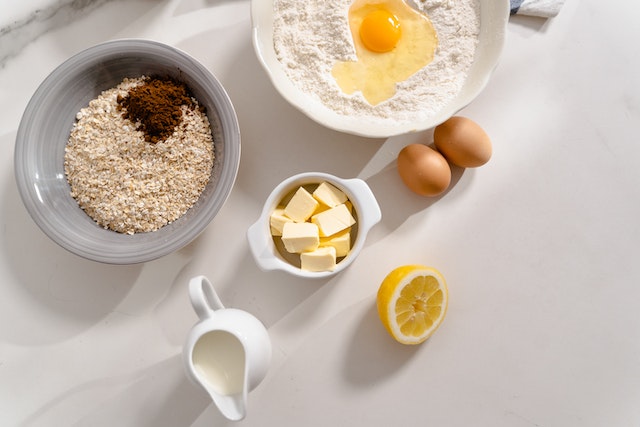

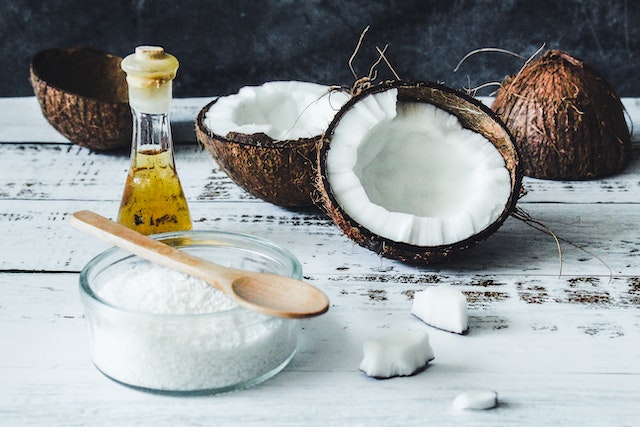
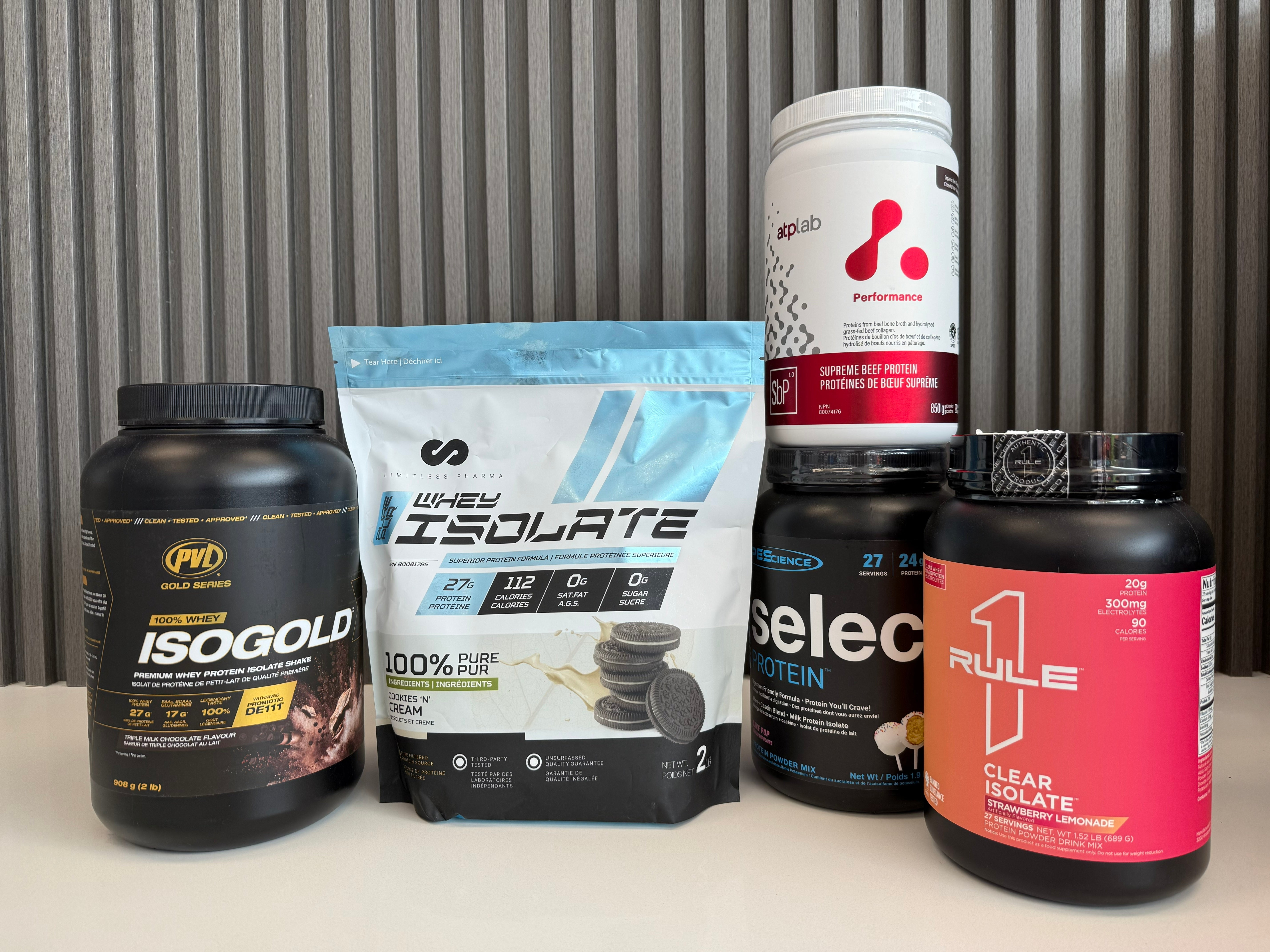
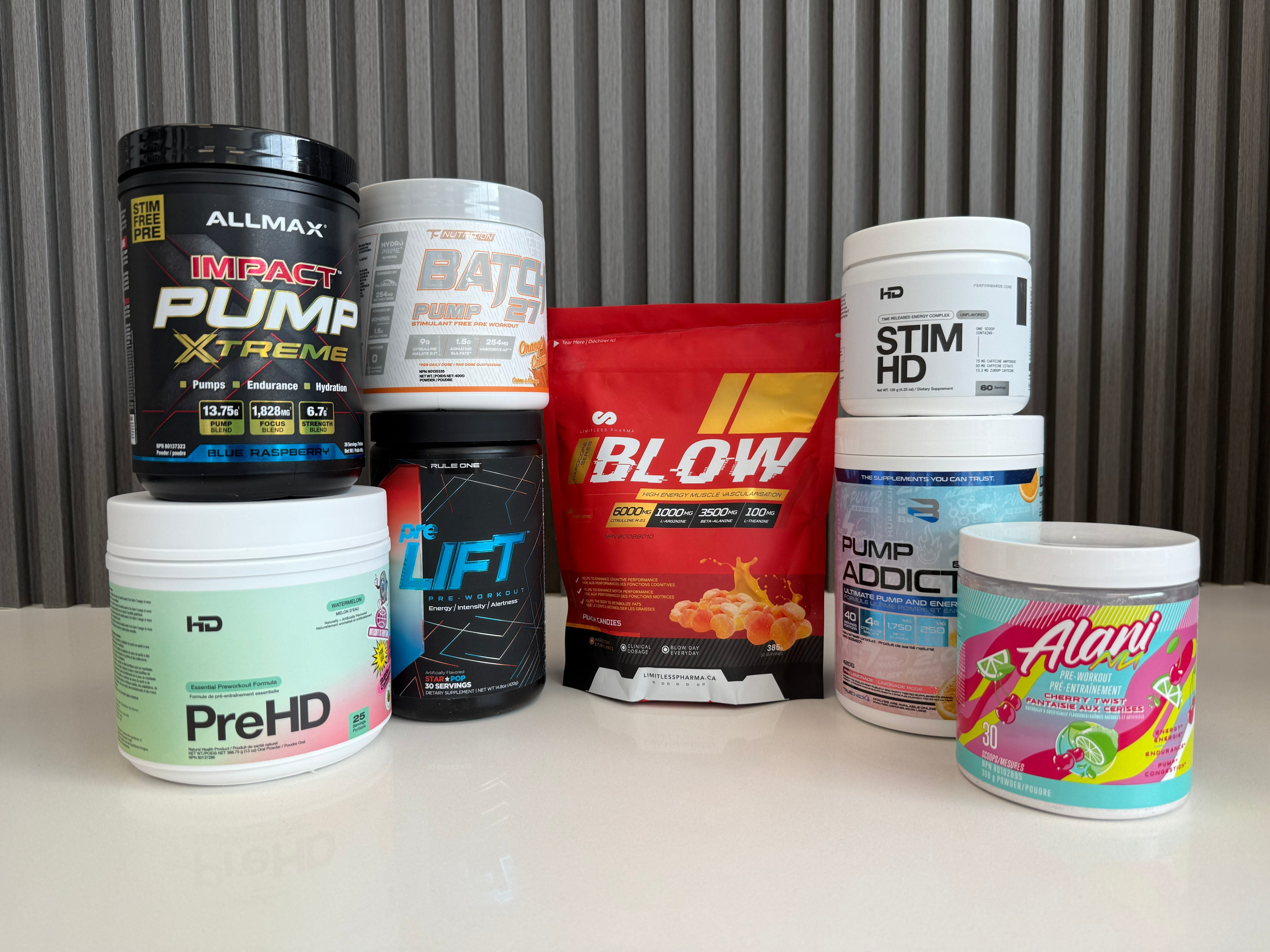
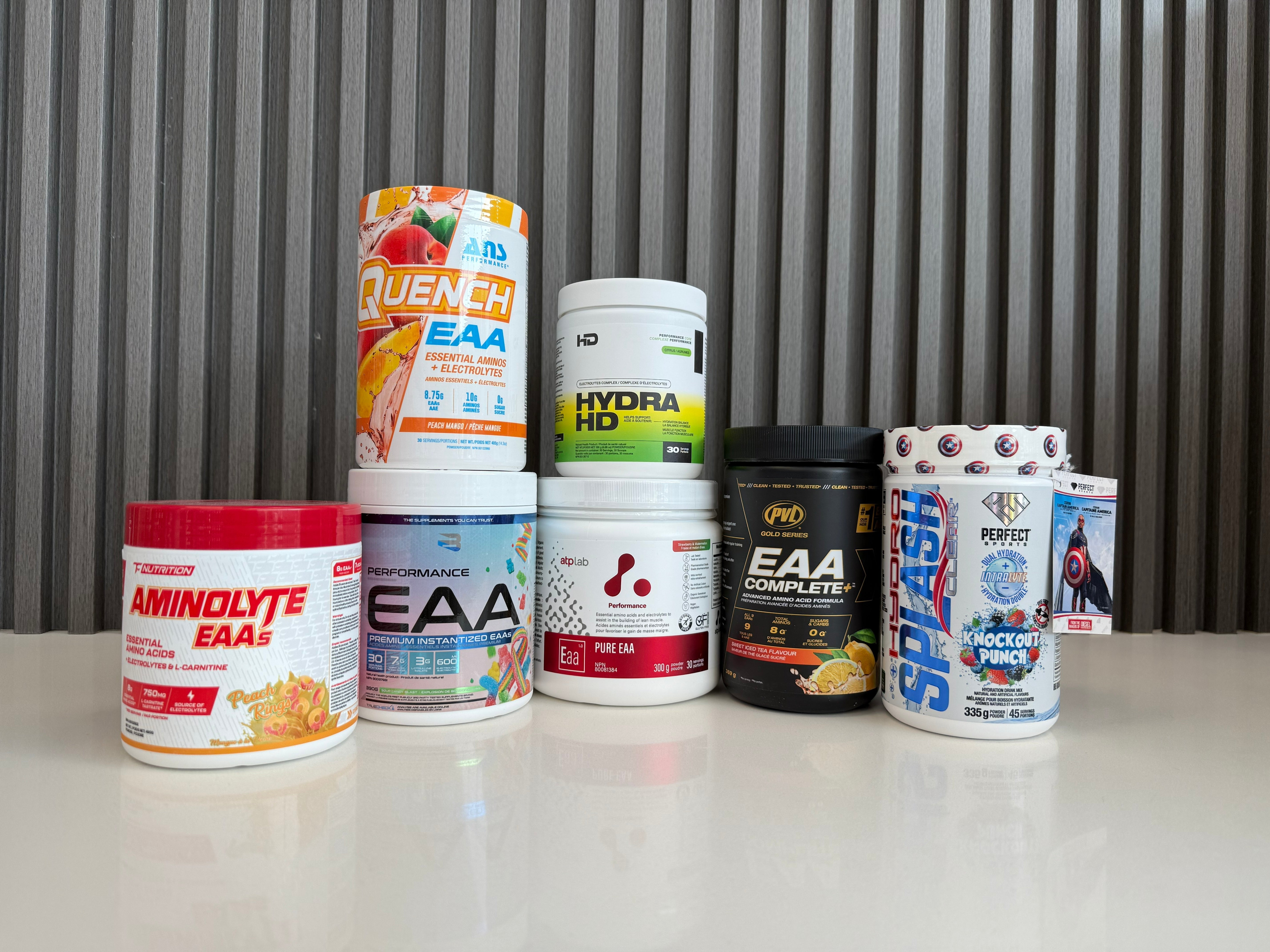
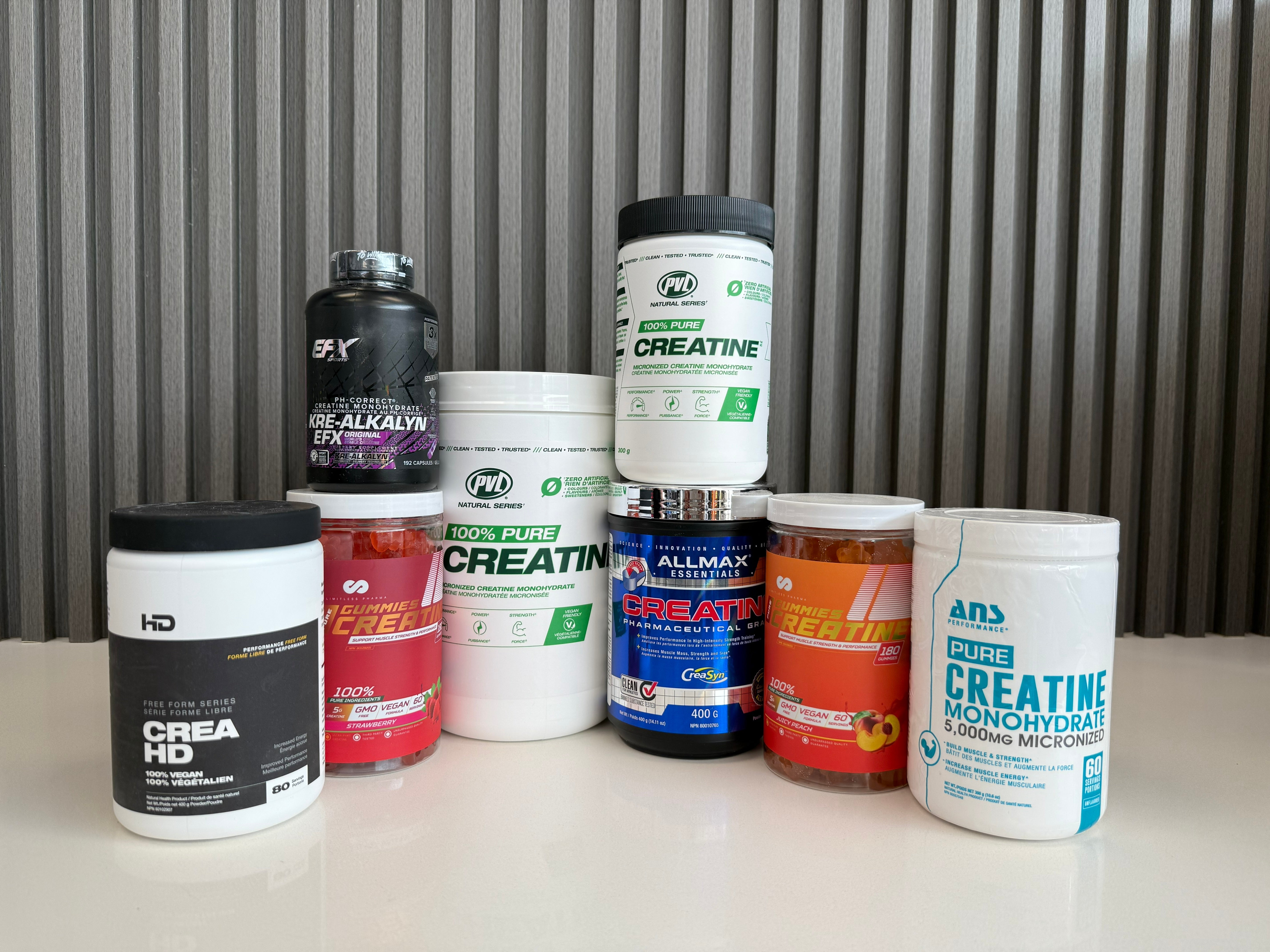
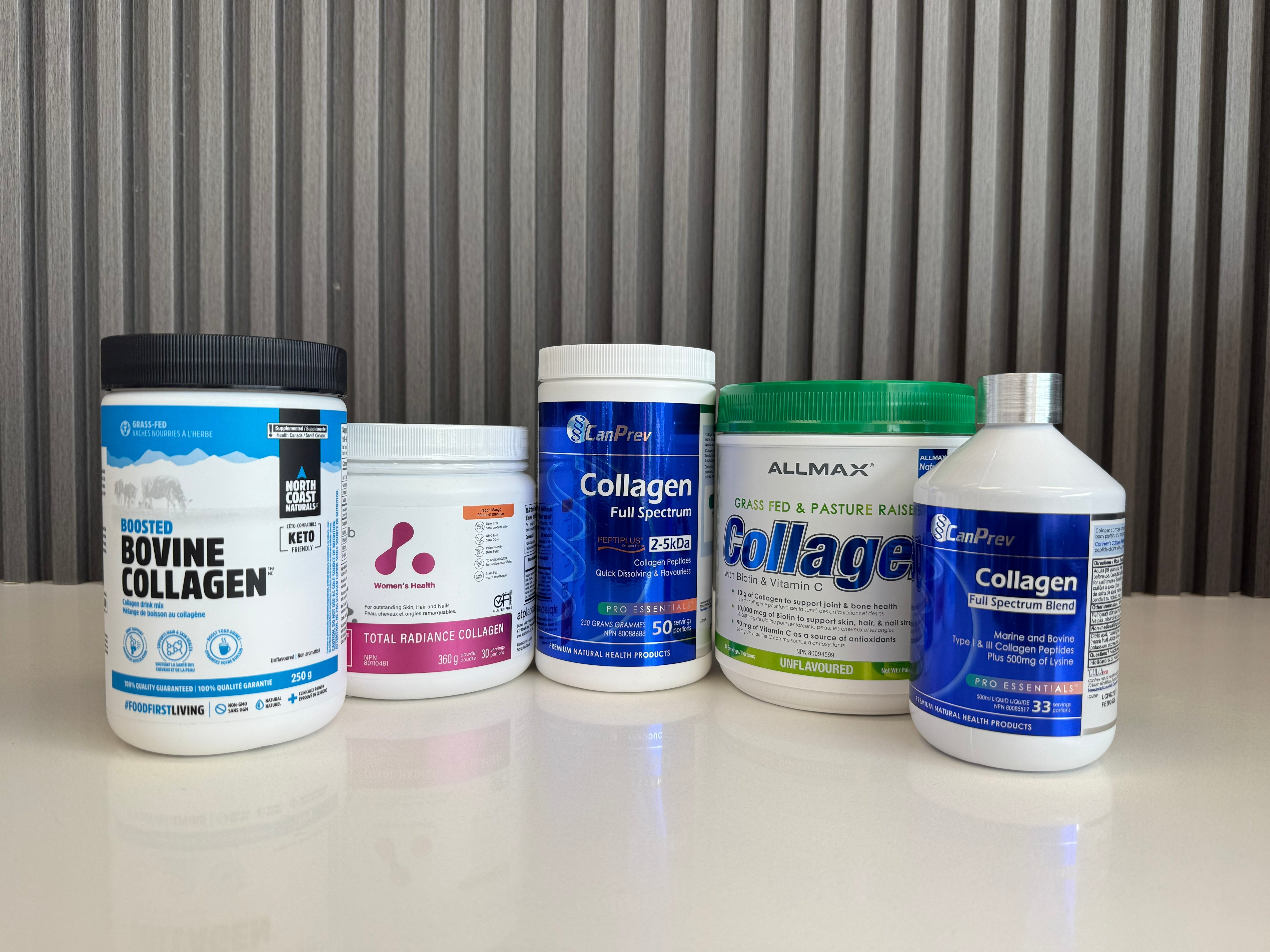
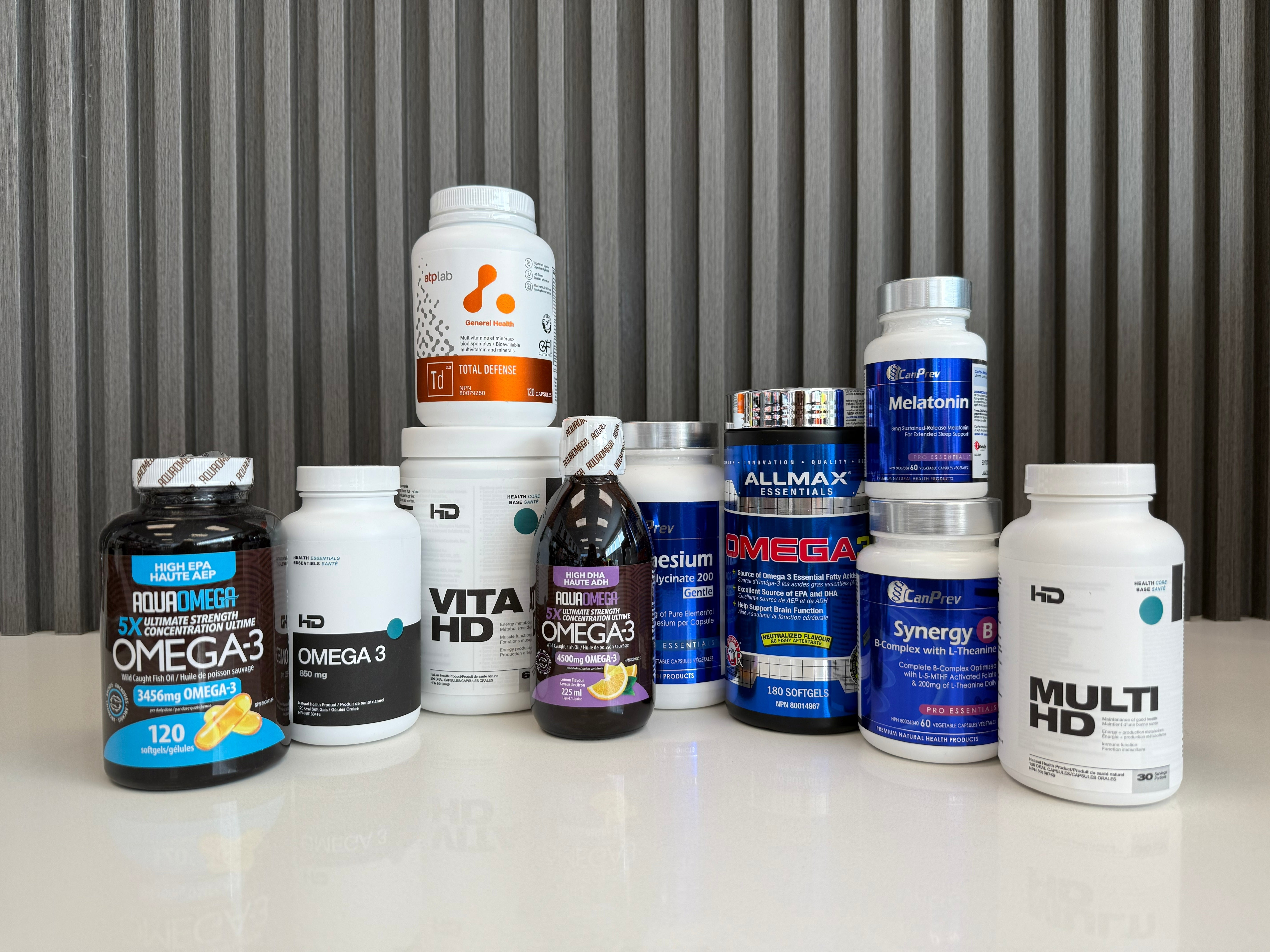
Laisser un commentaire
Tous les commentaires sont modérés avant d'être publiés.
Ce site est protégé par hCaptcha, et la Politique de confidentialité et les Conditions de service de hCaptcha s’appliquent.